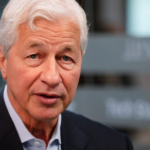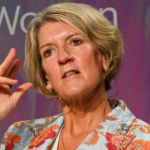“Roughly half our business is in the Hispanic community,” William A. Newlands, CEO of Constellation, which owns beer brands Corona, Modelo, and Pacifico, said at a June presentation at the DBAccess Global Consumer Conference. “The things that we’ve seen with that consumer is there’s a lot of concern about inflation. There’s a lot of concern about the whole immigration question … Where it’s playing itself out is in behaviors that are sort of anti our business, which is they’re going out to eat less.”
Walmart was more muted on the topic, but connected changes in immigration policy to business consequences. “We were able to detect some other changes potentially related to maybe negative consumer sentiment around looming tariffs, immigration noise. And we think that has some impact on our business,” said VP and CFO John David Rainey at a company conference presentation in June.
Timothy P. Cofer, CEO of Keurig Dr Pepper, said on an earnings call in April that changes in shopping trends owing to immigration were not “moving the needle yet,” but characterized it as something the company was keeping an eye on.
“The Hispanic consumer is the second largest demographic group here in the U.S. and accounts for a meaningful percentage of our business and broader CPG [consumer packaged goods] purchases,” he said. He added that the company had seen “softening trends among Hispanic consumers.”
In a January earnings call, the CEO of real estate and supply-chain company Prologis, Hamid Moghadam, said that when it came to Southern California, he believed that there were two issues that the market was not focused on.
“One is this whole discussion about immigration and its impact on labor supply and the impact of that on construction costs; and secondly, the pressure that the rebuilding efforts are going to put on material supplies and labor,” he said. “I think all of those things are going to drive replacement costs significantly higher.”
Heidi G. Petz, chair and CEO of Sherwin-Williams, said on an earnings call in April that “immigration and labor [issues] are not new for us. We’re continuing to focus on our value proposition here, which is simply to help these crews get on and off of job sites faster. So helping to solve for productivity is at the core of what we’re trying to do with this segment and all segments.”
“The downside is we still think net-net, any severe impact or radical impact on the labor force would be bad for the industry and bad for affordability, which is bad for starts, and we don’t like it,” he said. “So we think the trend is there. We think we’re ready. We think we’re going to win. But we sure hope that there is some thoughtfulness around how it’s executed in the market, both in tariffs and in immigration.”
“The math for merchant builder development today is very, very difficult. Given the more than doubling of the cost of capital, construction cost has continued to go up and not down, especially when you think about labor shortages and labor issues relative to immigration issues and tariffs that are on the horizon today.”









